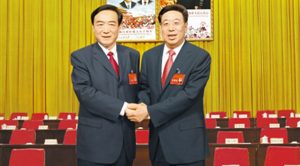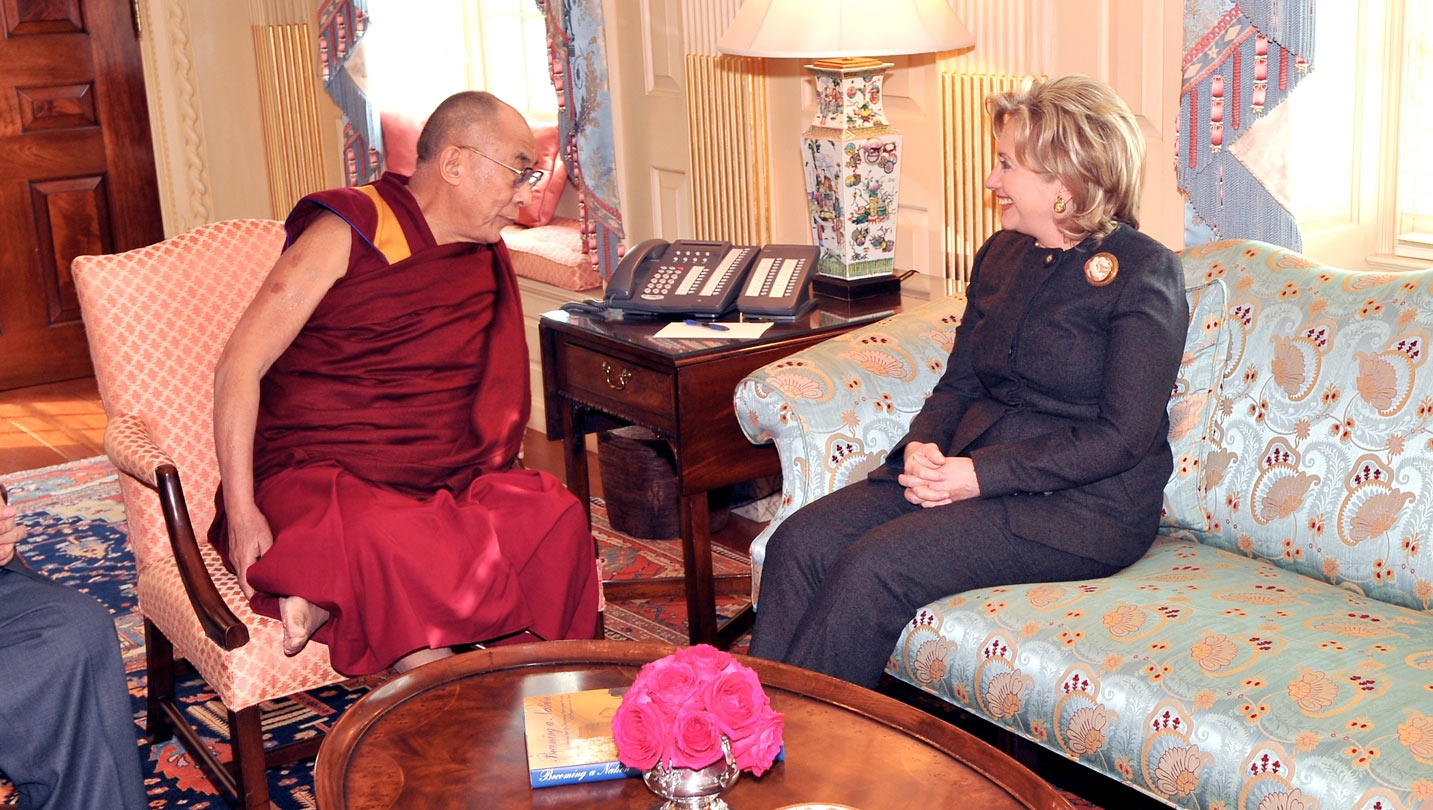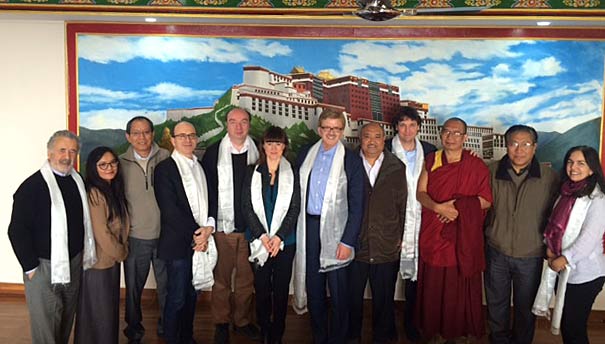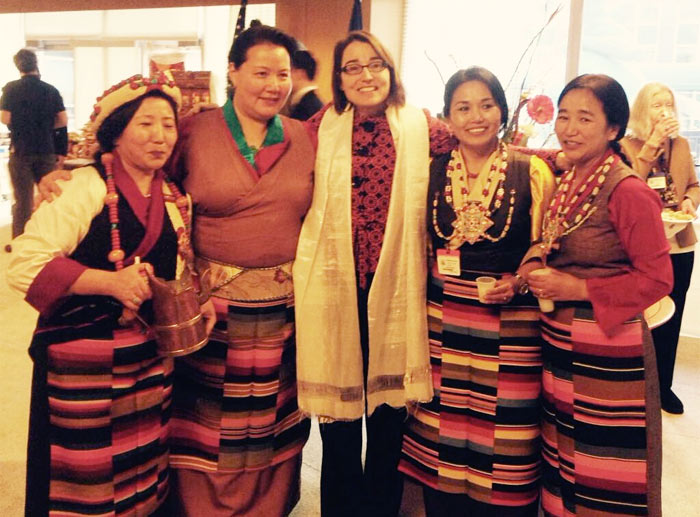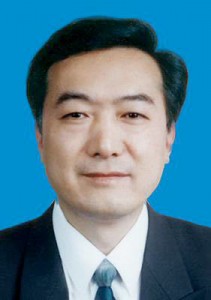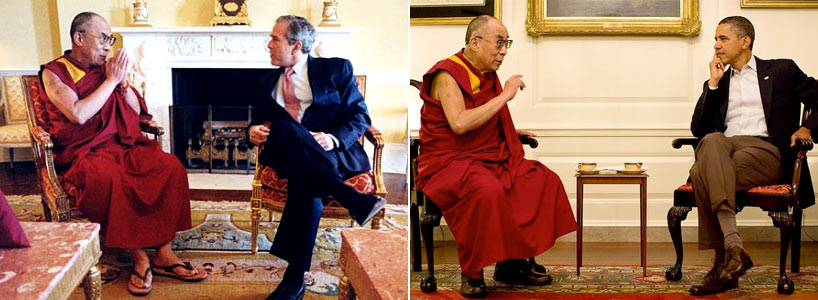
President George W. Bush and President Barack Obama meet with His Holiness the Dalai Lama at the White House during their terms in office. (The White House)
President Bill Clinton had called China a strategic partner; President George W. Bush said China was more of a strategic competitor. During President Obama’s time, China directly expressed its desire that its relations with the United States be recognized as being a “new type of major power relations”. The Obama Administration has not done this; rather it has done a pivot or rebalancing to Asia where relations with countries around China were strengthened, or efforts made towards that direction.
No matter what their positions were on China, all these presidents had a common approach towards the Tibetan issue; they were all very cognizant of the pragmatic and positive role of H.H. the Dalai Lama, met him in the White House, and supported his endeavor on Tibet.
President-elect Trump is an unknown entity as far as Tibet is concerned. Many of his staff might also end up being from a category that, like him, did not have any direct dealings on matters of Tibet. Two things that will guide them is the existing legislation on Tibet and the precedence set by the presidents before Mr. Trump.
The staff of the Trump Transition team assigned to the White House and the State Department should read the Tibetan Policy Act of 2002, a bipartisan legislation passed in 2003 to provide guidance to the Administration on matters relating to Tibet.
As the Congressional Research Service subsequently said in a report, “The Tibetan Policy Act of 2002 (TPA) is a core legislative measure guiding U.S. policy toward Tibet. Its stated purpose is “to support the aspirations of the Tibetan people to safeguard their distinct identity.” Among other provisions, the TPA establishes in statute the State Department position of Special Coordinator for Tibetan Issues and defines the Special Coordinator’s “central objective” as being “to promote substantive dialogue” between the government of the People’s Republic of China and Tibet’s exiled spiritual leader, the Dalai Lama, or his representatives. The Special Coordinator is also required, among other duties, to “coordinate United States Government policies, programs, and projects concerning Tibet”; “vigorously promote the policy of seeking to protect the distinct religious, cultural, linguistic, and national identity of Tibet”; and press for “improved respect for human rights.”
Secondly, and as can be seen from the Tibetan Policy Act of 2002, the United States “Congress has shown a strong interest in Tibet since the 1980s, passing dozens of laws and resolutions related to Tibet, speaking out about conditions in Tibet, and welcoming visits by the Dalai Lama and, more recently, the political head of the India-based Central Tibetan Administration.”
There is a strong bipartisan support to the Dalai Lama and the issue of Tibet in the Congress. Most recently this was seen during the Dalai Lama’s visit to Capitol Hill in June 2016, when he was received by the leadership. The members of Congress, both Republicans and Democrats, who are deeply supportive of the Dalai Lama and Tibet will continue to be active. Therefore, the new Trump Administration will do well to bear this in mind.
Thirdly, successive American Presidents have welcomed the Dalai Lama to the White House, in his capacity as an international statesman. President-elect Trump should also take the first opportunity of meeting the Dalai Lama. Through their personal interaction with the Dalai Lama the presidents so far have come to know of his far sighted thinking, not just on Tibet but also on global matters like religious understanding and human values. As a case in point, the State Department, in its latest report to Congress on Tibet (as mandated by the Tibet Policy Act of 2002), said, “The U.S. government believes that the Dalai Lama or his representatives can be constructive partners for China as it deals with continuing tensions in Tibetan areas. The Dalai Lama’s views continue to be widely reflected within Tibetan society and he represents the views of the vast majority of Tibetans. His consistent advocacy of non-violence is a key in reaching a lasting solution for Tibetans. Chinese government engagement with the Dalai Lama or his representatives to resolve problems facing Tibetans is in the interest of the Chinese government and the Tibetan people. Failure to address these problems will lead to greater tensions inside China and will be an impediment to China’s social and economic development, as well as continue to be a stumbling block to fuller political and economic engagement with the United States.”
Therefore, while we may not be aware of the position on Tibet of Mr. Donald J. Trump the individual, U.S. legislations and precedence set by previous presidents are clear guidelines on President Donald Trump’s position on Tibet.

